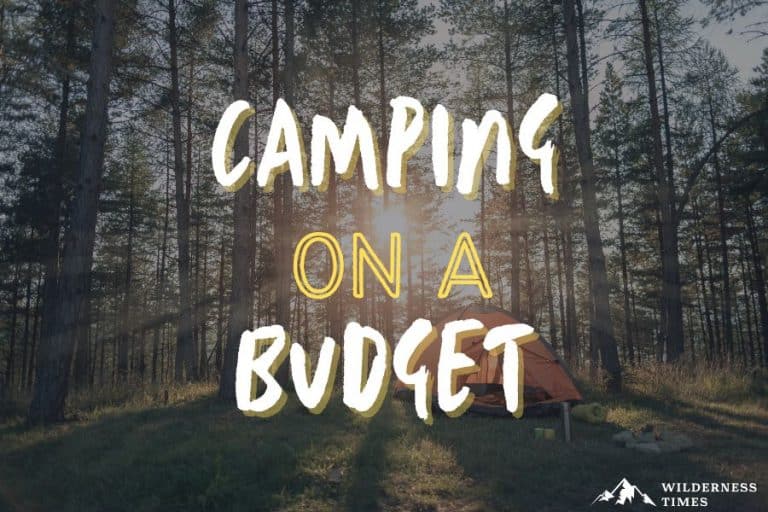My passion for hiking and camping was ignited while I was still in college, and believe me, I didn’t have any extra money lying around.
This meant that I had to come up with as many creative ways as I could to go on camping trips without breaking the bank.
While camping is an affordable activity it still costs money. First, you need quality gear, and then you pay fees at most campgrounds.
Over the years, as my passion for the outdoors grew, I came up with more and more ways to cut costs so that I could go more frequently.
In this article, I’ll share my top 18 tips for camping on a budget:
Table of Contents
ToggleChoosing a Budget-friendly Destination
When you begin to plan a low-budget camping trip, the first thing you have to decide on is where you’re headed.
Consider how expensive gas, food and campground fees are where you’re looking to go. Some places are far more expensive than others, so picking the right destination will make it much easier to stick to your budget.
1. Find a free campsite
Finding a free campsite is a great way to save money. Check to see if there’s a national park or state park where you’re headed. A lot of them have super cheap or even free entry and camping.
You can also camp for free on most National Forest or BLM Land. There are no permits or fees required for dispersed camping in National Forests or BLM Land (unless it is noted otherwise at the location).
But be careful when finding and setting up your campsite to make sure that you aren’t camping in a flood zone, under dead trees, or any other potentially problematic areas.
2. Go wild camping
In places where it’s allowed, wild camping is also a great way to go on a low cost vacation.
There are some pretty amazing locations where you’re free to set up camp wherever your heart desires. So, get out there and explore to find the perfect place for a camping getaway. Who knows what hidden gems you might come across?
3. Go for a lesser known destination
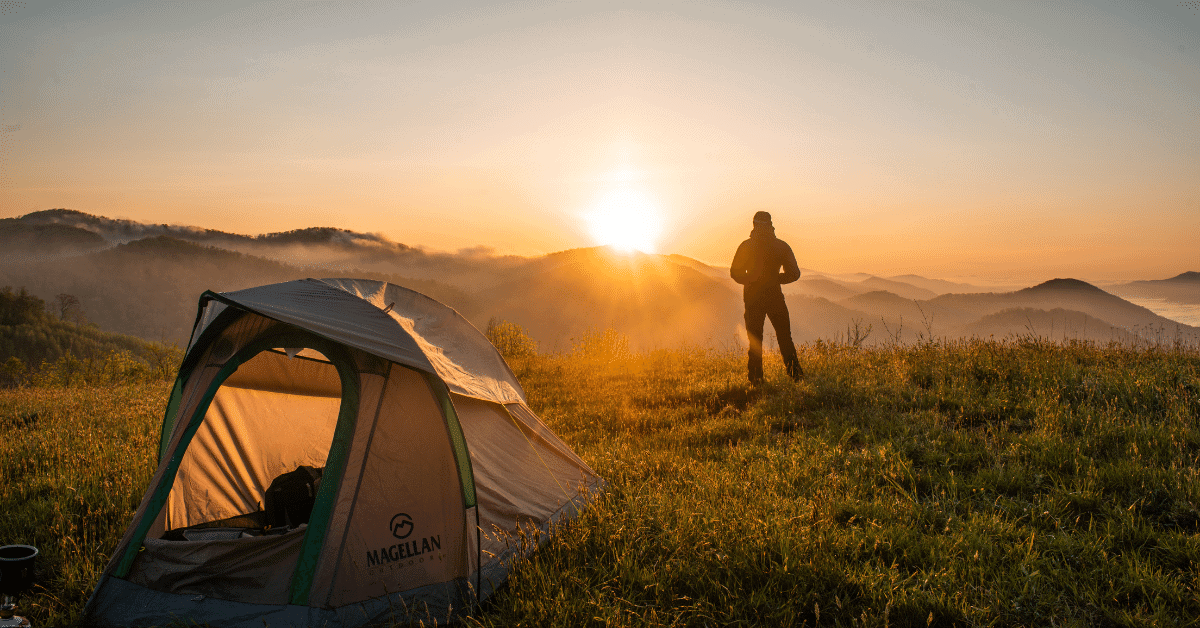
You wouldn’t believe how many camping spots there are that will absolutely take your breath away, and most people have never even heard of them.
Places that are heavily geared towards tourists tend to be quite expensive. If you ask me though, the real treasure is finding a beautiful spot in the wilderness as far away as possible from the hustle and bustle of tourist hotspots.
4. Avoid holidays and peak season periods
You should also generally try to go camping during a time of the year when things aren’t as busy.
The best thing to do is to plan your trip just before or just after the peak season. This way, you’ll avoid peak season prices and still have pleasant enough weather conditions for a successful camping trip.
Saving Money on Camping Gear
Camping equipment can be expensive. If you haven’t got any of the things you need, you’re looking at a hefty sum to get yourself geared up. Still, there are a few things you can do to save money when it comes to gear.
5. Stick to the essentials
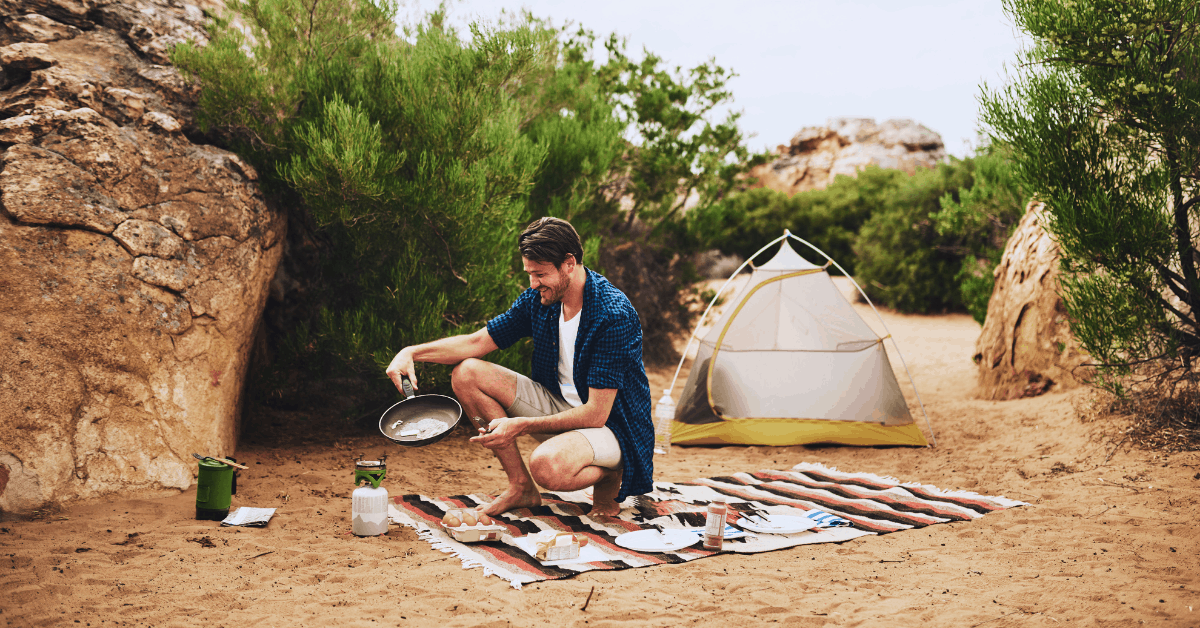
My first piece of advice when it comes to saving money on camping gear is to stick to the essentials. There are so many different gadgets out there and it’s easy to get caught up in a frenzy and buy a bunch of camping equipment you don’t really need.
While it can be neat to have extra camping gear, if your aim is to keep costs to a minimum, then keeping gear to a minimum should be your goal.
What you need in terms of camping gear is going to depend on the kind of camping trip you’re going on. Make sure you’ve got what’s important, but bypass things you can make do without.
6. Use things you’ve already got at home
If you’re going car camping, you can pack all of your favorite gear, without having to worry about the weight of your load. In this case, you can actually use a lot of the things you’ve already got lying around at home on your camping trip.
For instance, rather than buying sleeping bags you can use your own bedding from home on an air mattress. This will save you a bunch of money, and you’re guaranteed to get a good night’s sleep in the comfort of your own sheets and blankets. The same goes for kitchenware and clothing.
If you’re planning to go hiking on your camping trip, I would recommend having a good pair of hiking boots. It’s important to make sure they fit you well and are broken in, or you could end up with blisters and sores.
Other than that, you can just wear regular clothing, unless you’re going hiking in cold weather conditions.
7. Rent or borrow equipment
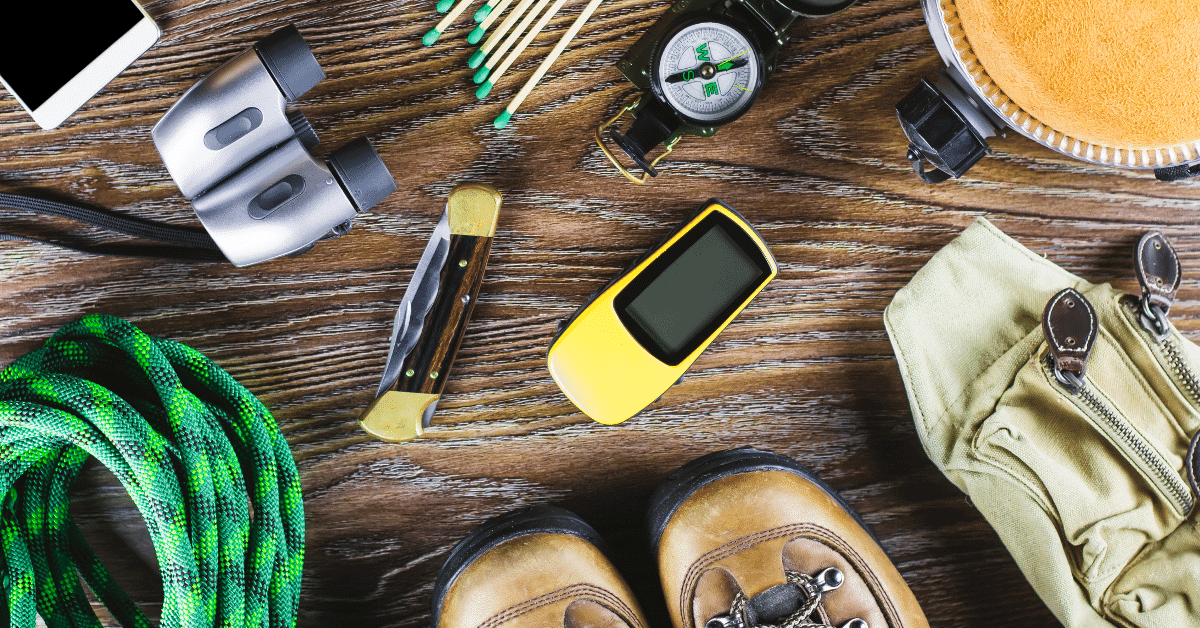
If you’re going camping during the winter or you’ll be backpacking and need special gear, what are your options? Well, another great way to save money on camping gear is by renting or borrowing your equipment. If you need a sleeping bag with a low temperature rating, or a backpacking tent that’s light enough to carry around, this is the way to go.
You can even make your own DIY camping tent out of tarps fairly easily, so that’s another way to save some extra cash.
Also Read: 20+ Best Tarp Shelter Configurations for Easy Tarp Camping
8. Buy used camping gear
Finally, another thing you should consider is buying used camping gear. Now, it really depends on what. There are some things, such as footwear, that I just wouldn’t buy second hand. Other things, however, such as tents, cookware, backpacks and bedding can be found in great condition for a fraction of the price you’d pay for new gear.
Keeping Food & Water Costs Down
Now, here’s the part that’s going to require the most organization. Food and water are the only things you can’t make do without, so you have to have a solid plan in place for both if you’re going camping on a budget
If you want to stick to a set camping budget in the food department, you’re going to have to plan all your meals and snacks in advance. If you do this well, you won’t end up having to buy extra food along the way and going over budget.
9. Dehydrate your own trail mix
One fabulous way to save money is to dehydrate your own trail mix. This is way cheaper than buying it at the supermarket, not to mention how much healthier it is. I love making my own trail mix because I can put exactly what I want into it.
Other than fruits and nuts, you can also dehydrate things like yogurt and even your own beef or veggie jerky. Making your own cheap, tasty and healthy snacks is a must for any camping trip as far as I’m concerned, but especially if you’re on a tight budget.
You can even go one step further and dehydrate entire meals that you’ve made in advance at home. These can then be rehydrated and heated up at the campsite for a quick and effortless homemade camping dinner.
10. Stick to a vegetarian diet
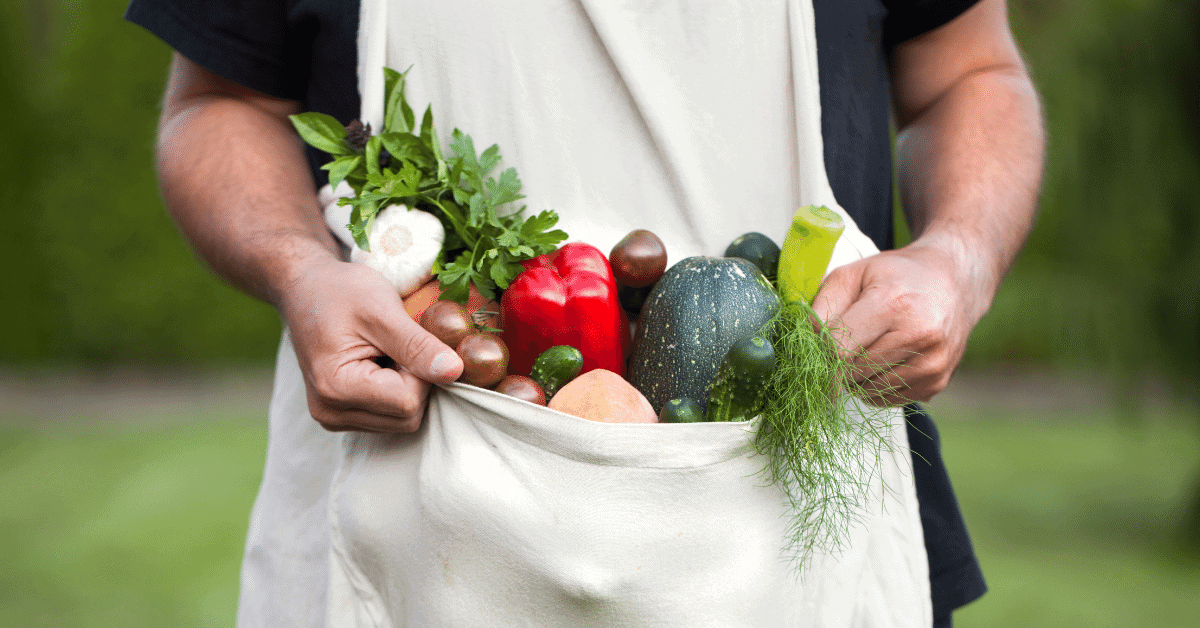
I’m personally not a vegetarian, but a lot of the cooking I do on camping trips is plant based.
There are a couple of reasons for this.
First of all, veggies are easier to keep fresh for longer than meat and dairy products. Also, there’s such a huge range of vegetarian dishes you can whip up at a campsite that are cheap, quick and delicious.
11. Cook your meals on the campfire
Using the campfire to cook your meals is another great way to save money. There are lots of great recipes you can find for campfire snacks and meals that won’t cost you a penny more than the price of the ingredients.
This is an especially good tip for backpackers, as you won’t have to worry about carrying a camping stove around.
Pro tip: bring your own firewood to make sure you have enough wood to burn. If you’re camping in a wet area, it might be difficult to start a fire with the wood you find around you. In that case, you’d be left to buy firewood at the campground, which can be very expensive.
Additional Reading: Campfire Cooking Equipment – 18 Awesome Outdoor Kitchen Tools
12. Fill up on water from natural sources
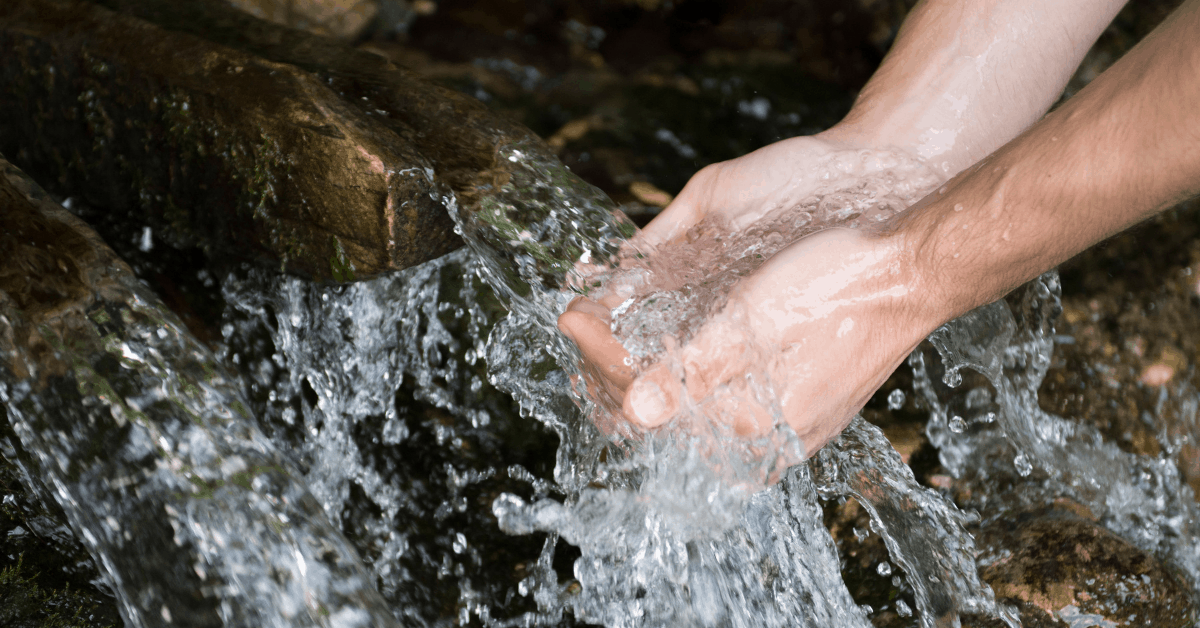
As far as water on a camping trip is concerned, you’ve got 3 possible options:
- Sourcing water from a natural spring
- Purifying water from nearby sources such as lakes and rivers
- Buying enough bottled water in advance to take with you on your trip
Of course, if you’re going camping somewhere with a natural water source nearby, you’ll definitely be going for option #1. This is by far the best option as it’s completely free, and you’ll be drinking the purest water you’ve ever had in your life.
13. Purify your own drinking water
If this isn’t an option, you’re left to decide between options 2 and 3. Needless to say, option #3 is the least budget friendly. On the other hand, purifying your own water calls for the additional expense of a water purification system. If you’re planning on going camping regularly though, this is definitely a wise investment as you’ll save a ton of money on bottled water in the long run.
Finding Low-cost & Free Activities
The beauty of camping and spending time in nature is that there are so many great things to do outdoors that are completely free.
14. Find a great hiking trail
Starting with the obvious one, hiking is a great activity for the whole family that doesn’t cost a thing. You can find hiking trails online in any area, and in hiking apps as well, so all you have to do is pick a trail based on the length and difficulty you want, and away you go.
15. Try your hand at orienteering
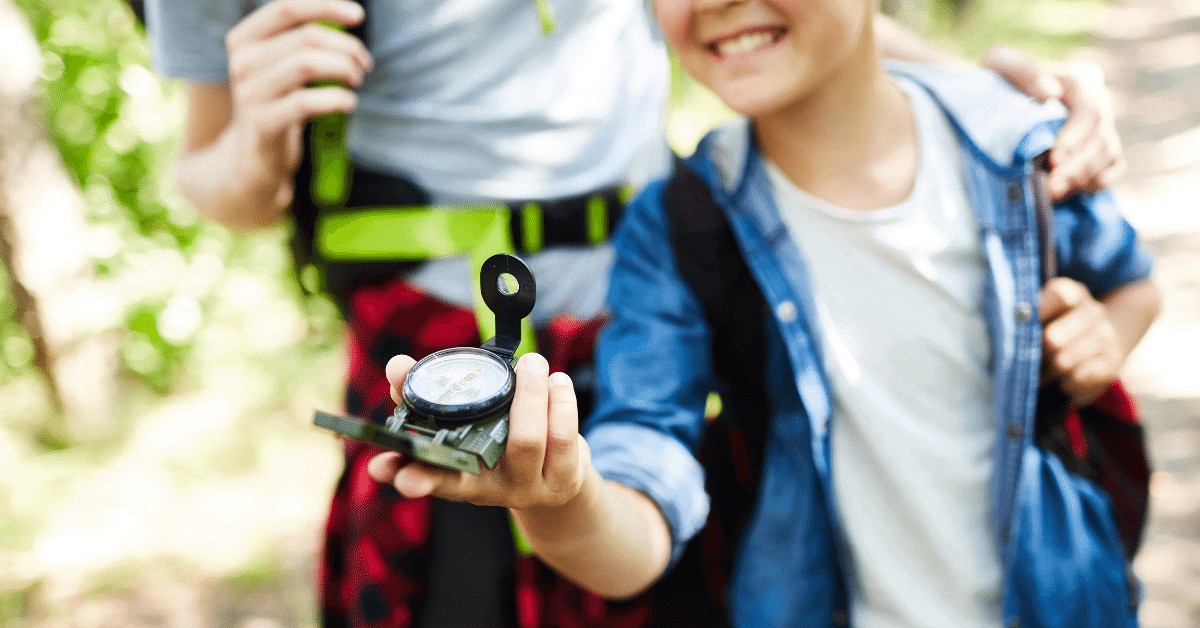
If you want to spice things up a bit, try orienteering. Reach out to local orienteering clubs to find events. These are usually very cheap or even free to join, and they’re a great way to have a fun day out navigating the wilderness.
16. Go swimming at a nearby lake or river
If there are any lakes or rivers nearby, you can also go swimming. This is another free activity, and it’s a guaranteed fun time for the whole family. A lot of lakes will also have kayaks and paddle boats that you can rent for a small fee.
17. Make the most of state park children’s programs
If you’ve got children, a lot of state parks offer programs for the kids.
These are usually inexpensive, and sometimes even free of charge.
If you find something like this close to where you’ll be staying, it’s a great way to keep the kids entertained and give you a little bit of time to yourself.
18. Enjoy stargazing at night
Last but not least, don’t forget to look up at the night sky.
If you live in a big city, the sky you’re used to seeing at night is nothing like the sky you’ll see while you’re camping.
One of my favorite parts of any camping trip is stargazing each evening, even from within my tent.
Staring up at the galaxy is just as mesmerizing as the forests and mountain views you get to see during the day.
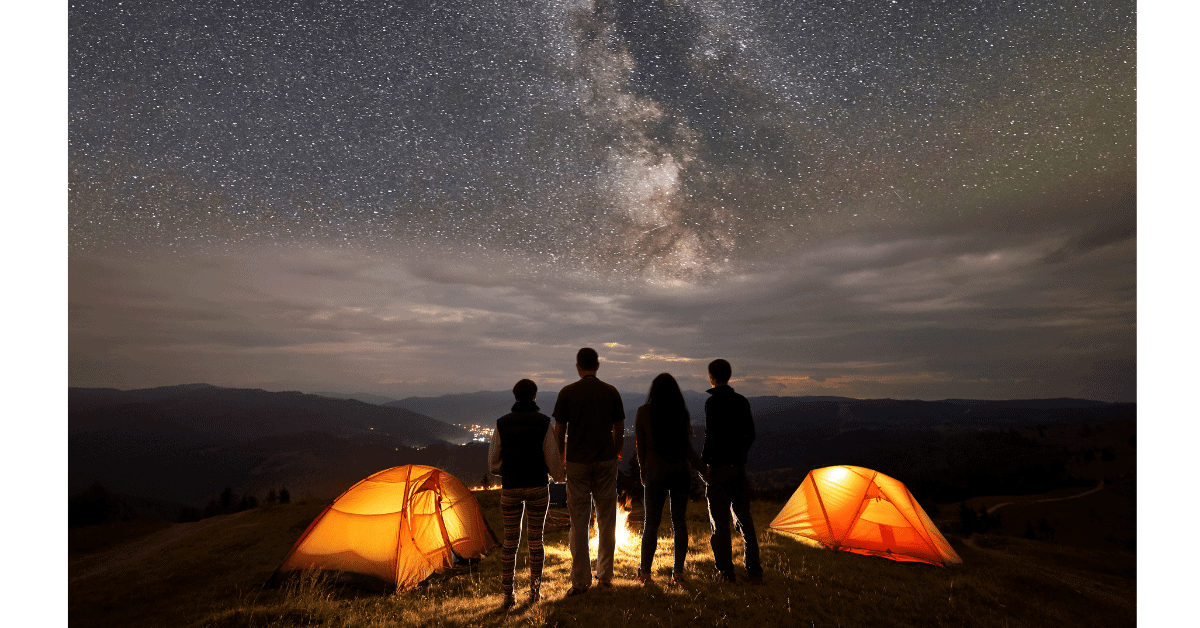
Summary
If you keep all of these things in mind, you should be able to save quite a bit of money on your next camping trip.
Remember, you can go camping on a budget without giving up any creature comforts. Whether you’re going on a family camping trip or a solo backpacking expedition, all it takes is a little bit of planning and organization to cut down on unnecessary costs.
It might only be a few dollars here and a few dollars there, but it all adds up. You’d be amazed at the amount of money you can save just by making a few small changes.


